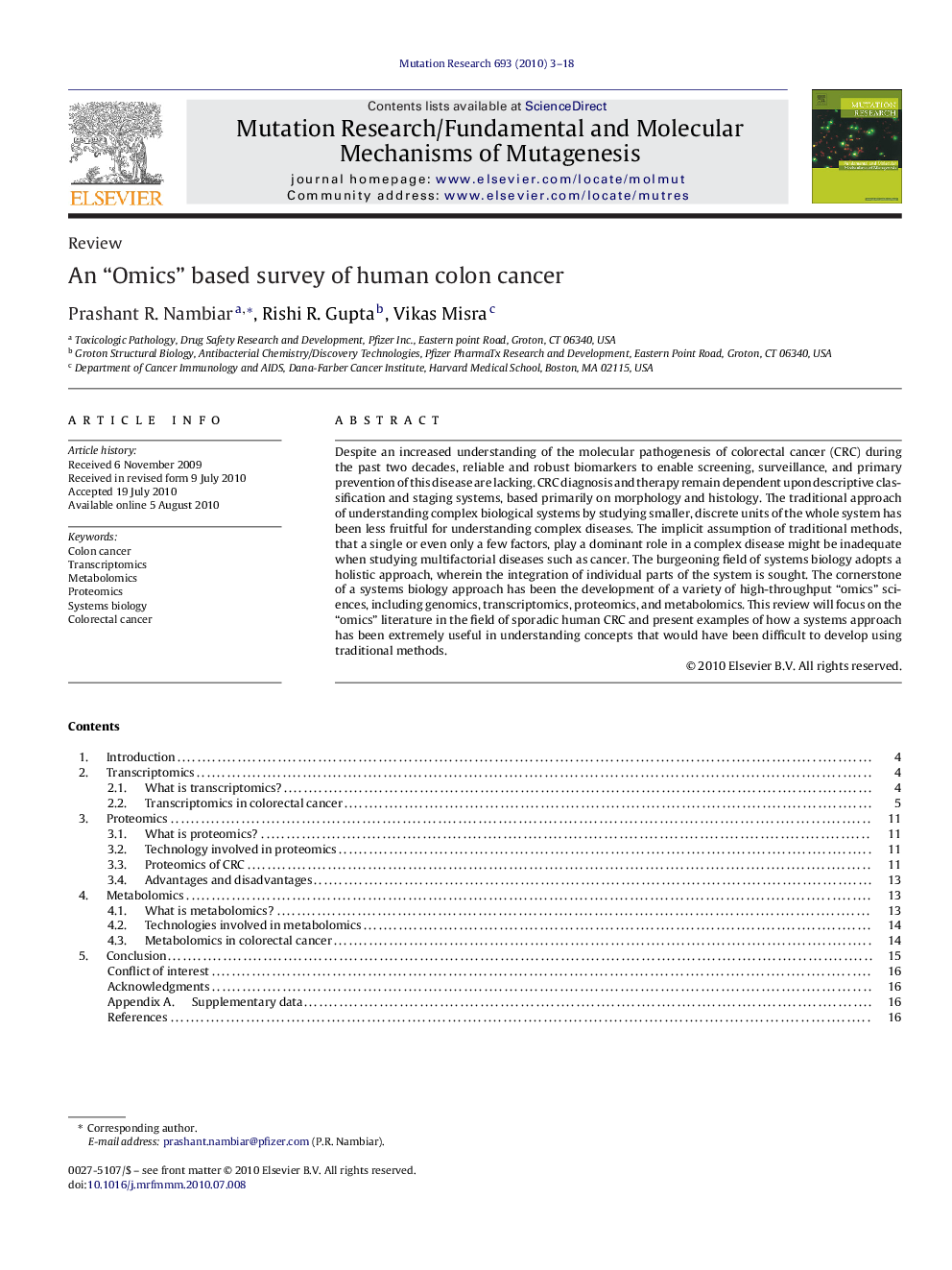| Article ID | Journal | Published Year | Pages | File Type |
|---|---|---|---|---|
| 2146705 | Mutation Research/Fundamental and Molecular Mechanisms of Mutagenesis | 2010 | 16 Pages |
Despite an increased understanding of the molecular pathogenesis of colorectal cancer (CRC) during the past two decades, reliable and robust biomarkers to enable screening, surveillance, and primary prevention of this disease are lacking. CRC diagnosis and therapy remain dependent upon descriptive classification and staging systems, based primarily on morphology and histology. The traditional approach of understanding complex biological systems by studying smaller, discrete units of the whole system has been less fruitful for understanding complex diseases. The implicit assumption of traditional methods, that a single or even only a few factors, play a dominant role in a complex disease might be inadequate when studying multifactorial diseases such as cancer. The burgeoning field of systems biology adopts a holistic approach, wherein the integration of individual parts of the system is sought. The cornerstone of a systems biology approach has been the development of a variety of high-throughput “omics” sciences, including genomics, transcriptomics, proteomics, and metabolomics. This review will focus on the “omics” literature in the field of sporadic human CRC and present examples of how a systems approach has been extremely useful in understanding concepts that would have been difficult to develop using traditional methods.
